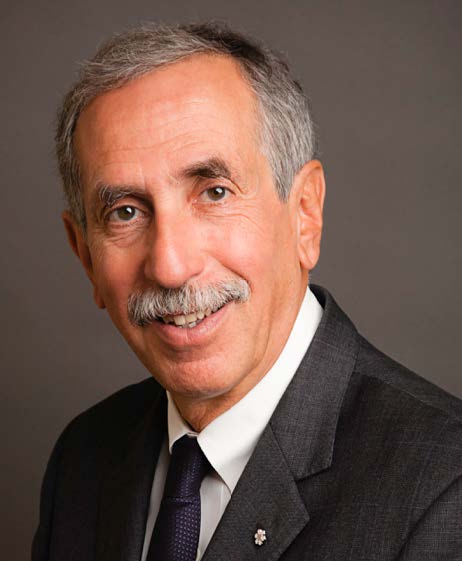
World-renowned Canadian scientist and cancer biologist Alan Bernstein was recently honoured with the 2017 Henry G. Friesen International Prize in Health Research for his lifetime contributions to his field and his leadership in Canadian and international scientific communities. The acclaimed scientist will be sharing insights from his life as part of the annual Friesen Prize Visit and lecture at the UAlberta campus on May 16 and 17.
Bernstein obtained his PhD from the University of Toronto in Medical Biophysics, and completed postdoctoral research at the Imperial Cancer Research Fund Laboratories in London, U.K. He has been an educator since 1974, and has led multiple high-profile health research institutions. He has authored more than 225 peer-reviewed articles and 65 publications in media in Canada, the U.S. and the U.K.
Bernstein is internationally recognized and highly respected as an institutional leader. Here are three reasons why he is a driver of innovation in health.
1. He has forged a path to local and global health improvements
Bernstein has made strides with national and international impact. His laboratory has pioneered techniques for introducing genes into blood stem cells, and has produced some of the earliest evidence for the multiple stages of cancer.
He was the founding president of the Canadian Institutes of Health Research (CIHR), changing the face of research in Canada. He also served as executive director of New York's Global HIV Vaccine Enterprise, an international alliance of organizations committed to accelerating the development of an HIV vaccine.
Currently, he is the President and CEO of the Canadian Institute for Advanced Research (CIFAR), which brings together almost 400 researchers to address questions of importance for humanity globally.
2. An exceptional list of awards and honours
For his unique contributions, Bernstein has garnered six honorary degrees from various Canadian universities in his career-five Doctor of Science degrees and one Doctor of Laws degree.
Among his many recognitions he has been presented with the Queen Elizabeth II Diamond Jubilee Medal and the Gairdner Foundation Wightman Award. He is also a Senior Fellow of Massey College and Distinguished Fellow of the Munk School of Global Affairs; a Fellow of the Royal Society of Canada; an Officer of the Order of Canada; recipient of the Order of Ontario; and a Canadian Medical Hall of Fame Laureate.
3. He is a recognized mentor and advocate for collaborative work
Throughout his career, Bernstein has stood out as a dedicated mentor and has supervised dozens of graduate students and postdoctoral fellows. His learners are known to hold senior academic and industry positions in Canada and around the world.
Putting aside his individual accomplishments in education and research, Bernstein considers teamwork to be essential in helping scientists face the most critical global challenges. He explained how collaboration can save lives in this interview with CBC in 2017.
Event details:
Friesen International Prize in Health Research Visit
Featuring Alan Bernstein, renowned Cancer Biologist and Institutional Leader
Dates:
The Impact of Big Data and AI on Health Research
Distinguished Visitor Forum: Roundtable Discussion
May 16, 3 - 4:30 p.m. at ECHA L1-190 (lower level)
The Acceleration Revolution in Health Research: Opportunities and Challenges for Canada
Friesen International Prize Lecture
May 17, 9:30 - 10:45 a.m. at ECHA L1-490 (lower level)